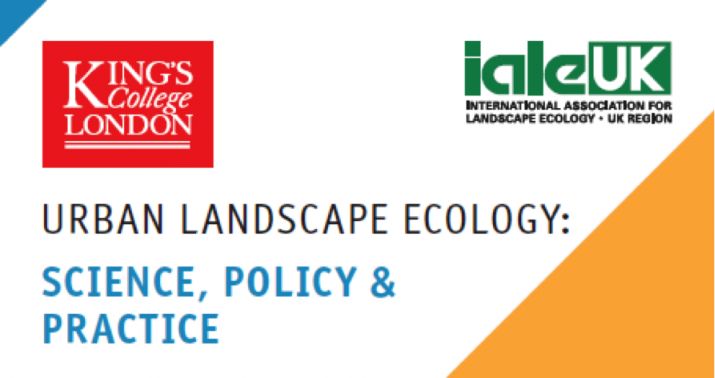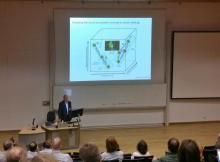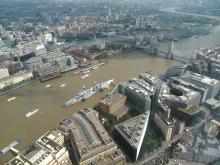
This year’s Annual Conference took place at King’s College London on 1-3 September. With the theme of ‘Urban landscape ecology: science, policy and practice’, academics, practioners and policy makers met to examine and discuss how landscape ecology can help identify sustainable solutions to the challenges faced by our cities, towns and the connected landscapes beyond. Over 60 delegates from around the world attended to consider and debate how concepts from landscape ecology could inform the maintenance and restoration of natural environments across urban and peri-urban landscapes as the foundation of sustained economic growth, prospering communities and personal well-being.
Spread over three days, with two days of presentations and a third day for excursions, the conference had four main themes:
- Mapping and Modelling Urban Landscapes considered the application of technical tools for understanding and managing urban landscapes;
- Managing Urban Landscapes explored alternative approaches to conservation and stewardship of ecosystems in the urban contexts;
- Urban Patches and Heterogeneity examined the components of urban landscapes, including green roofs, and how they and their spatial configuration influence ecosystem function;
- Urban Rivers and Water looked at how urban landscapes influence water resources and discussed the efforts to restore riparian and aquatic habitats.
Keynote presentations on each of the first two days set the scene for discussions. Prof. John Handley from the University of Manchester explored the co-evolution of ecology and urban design in the modern era, from both a conceptual and practical standpoint, in his keynote entitled, Ecology in the service of the city. Prof. Ingo Kowarik of the Technical University Berlin examined the issues he identifies as key to help increase understanding of urban habitat functions and their integration into urban development in his keynote entitled, Biodiversity functions of urban habitats.
On day three, excursions included visiting three iconic sites across London: The Shard, to view London’s spatial pattern and connectivity from Western Europe’s tallest building; The Thames Barrier to tour London’s vital flood defence; and Queen Elizabeth II Olympic Park to explore the ecological legacy of the 2012 Olympic Games. The opportunities for networking with colleagues was available throughout the conference, including during the conference reception, which was held on the first evening in the beautiful Southwark Cathedral.
The 2014 ialeUK conference was hosted and organised by members of the Department of Geography at King’s College London, led by Dr James Millington and in partnership with Dr Robert Francis, Dr Michael Chadwick and Ben Smith. Vital organisational support has also come from King’s College London and the ialeUK committee and for which the organisers are most grateful. Participation at the conference of several ialeUK student members has in-part been supported by Student Conference Registration Fee Awards from ialeUK (in co-ordination with Jess Neumann). Look out for articles about the conference from these students in future ialeUK newsletters!

